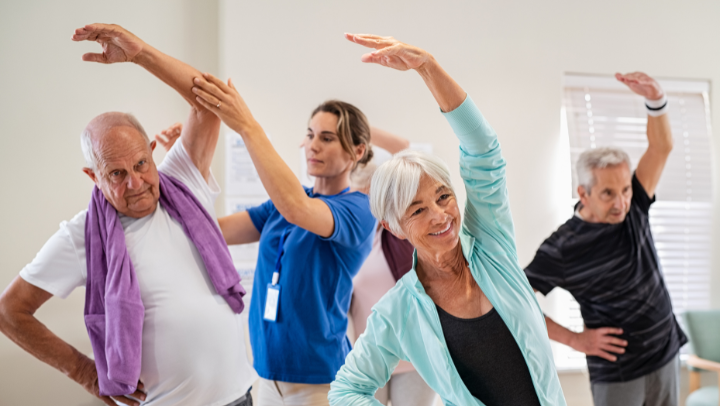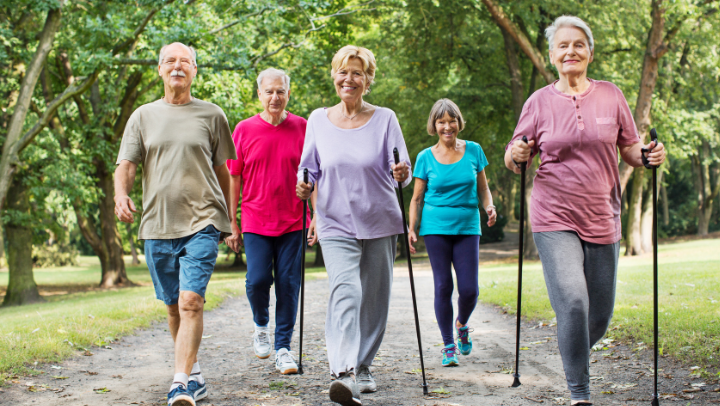
The Advantages of Low-impact Exercises: An Approach to Fitness in Tacoma, WA

Comprehending Low-impact Workouts
Maintaining our physical well-being becomes increasingly crucial as we navigate life’s journey. Low-impact exercises offer a gentle and practical approach to fitness. They are designed to minimize stress on the joints while providing a challenging workout that strengthens muscles, improves flexibility, and boosts cardiovascular health.
Low-impact exercises encompass many easy physical activities, making them ideal for those seeking a more gentle fitness routine. Unlike high-impact exercises involving jarring movements or intense pounding, low-impact workouts are characterized by smooth, controlled motions that reduce the risk of injury while delivering remarkable benefits.
The Benefits of Low-impact Exercises
- Joint Protection: Low-impact exercises minimize the stress and strain on your joints, making them an excellent choice for those with arthritis, joint replacements, or previous injuries. Lowering the impact on your knees, hips, and ankles allows you to enjoy a comfortable workout without exacerbating existing issues.
- Improved Cardiovascular Health: Despite their gentle nature, low-impact exercises can raise your heart rate and improve cardiovascular fitness. Walking, swimming, or cycling can strengthen your heart and lungs, decreasing the risk of heart disease, stroke, and other cardiovascular problems.
- Increased Muscle Strength and Endurance: Low-impact exercises often incorporate resistance training, which can help build and maintain muscle strength and endurance. Stronger muscles improve your overall fitness and support better posture, balance, and mobility, which are essential for maintaining independence as you age.
- Enhanced Flexibility and Range of Motion: Many low-impact exercises emphasize stretching and mobility to improve flexibility and range of motion. This can help prevent injuries, alleviate muscle soreness, and promote better overall movement and functionality.
- Stress Relief and Improved Mental Well-being: Regular physical activity, even at a low-impact level, can have a positive impact on mental health. Exercise has been shown to reduce anxiety and depression while also boosting mood, sleep quality, and cognitive function.
Why Low-impact Exercises are Ideal for Seniors
- Reduced Risk of Injury: As we age, our bones and joints wear more easily, making high-impact activities more likely to cause injuries. Low-impact exercises minimize the risk of falls, sprains, or fractures, allowing seniors to stay active while prioritizing safety.
- Improved Balance and Coordination: Many low-impact exercises incorporate balance and coordination exercises. These can help seniors maintain and improve their stability, lessening the likelihood of tumbles and promoting independence in daily activities.
- Gentle on Aging Joints: As we age, our joints may experience arthritis, osteoporosis, or other age-related conditions. Low-impact exercises are gentle on these joints, allowing seniors to maintain mobility and flexibility without exacerbating existing issues.
- Accessible and Adaptable: Low-impact exercises can be easily modified to accommodate individual needs and limitations. Whether you prefer land-based activities or water-based exercises, numerous options can be tailored to your fitness level and preferences.
- Promotes Social Engagement: Many low-impact exercise classes or programs offer seniors opportunities to socialize and connect with others, fostering a sense of community and combating isolation, which can be beneficial for mental and emotional well-being.
Examples of Low-impact Exercises for Seniors
- Walking: One of the most straightforward and accessible low-impact exercises, walking can be done indoors or outdoors at a pace that suits your fitness level. It’s a great way to improve cardiovascular health, strengthen leg muscles, and promote well-being.
- Swimming and Water Aerobics: Water-based exercises are incredibly gentle on the joints, as the buoyancy of the water reduces the impact on your body. Swimming and water aerobics can provide a full-body workout while minimizing the risk of injury.
- Yoga: Gentle yoga can improve flexibility, balance, and strength while promoting relaxation and mindfulness. Yoga can be easily modified to accommodate different ability levels and physical limitations.
- Tai Chi: This ancient Chinese practice combines gentle movements, deep breathing, and meditation, making it an excellent low-impact exercise for seniors. It can improve balance, coordination, and overall well-being while promoting a sense of calm and relaxation.
- Training with Resistance Bands or Light Weights: Light resistance training can help build and maintain muscle strength, which is essential for maintaining independence and preventing falls. Resistance bands or light weights can be great for targeting various muscle groups without putting excessive stress on the joints.
- Pilates: Pilates focuses on controlled movements that engage the core muscles while improving flexibility, posture, and overall body awareness. It can be adapted to different levels and is a gentle yet effective way to strengthen the body.

Tips for Staying Active as a Senior
- Prioritize Daily Movement: Aim to incorporate movement into your daily routine, even if it’s just a walk or some gentle stretching exercises. Regular exercise can help maintain strength and balance, which are crucial for seniors.
- Engage in Social Activities: Participate in group exercise classes, join a walking club, or engage in recreational activities with friends or family. Social connections provide motivation and make exercise more enjoyable while fostering a sense of community and combating isolation.
- Incorporate Strength Training: Maintaining muscle strength and bone density is crucial as we age. Low-impact strength training exercises, such as resistance bands or light weights, can help build and maintain muscle mass.
- Change Activities as Needed: As your fitness level and abilities change over time, don’t be afraid to change your activities or seek guidance from a professional or fitness instructor. Adapting your routine can help you stay safe and enjoy the benefits of physical activity.
- Set Realistic Goals: Set achievable goals that align with your current fitness level and personal preferences. Celebrate small victories along the way, and don’t be discouraged if progress is slower than you anticipated. Consistency and patience are key.
- Listen to Your Body: Pay attention to how your body feels during and after exercise. If you experience excessive fatigue, adjust your routine or consult a professional.
Embracing Low-impact Exercises for a Healthier Lifestyle
Embracing low-impact exercises can be a transformative journey towards a healthier and more fulfilling lifestyle. By incorporating these gentle yet effective activities into your routine, you can experience numerous benefits to your overall well-being. Exercises offer a safe and accessible approach to fitness, catering to individuals of all ages and abilities. They provide a gentle way to improve cardiovascular health, build strength and endurance, enhance flexibility, and promote balance and coordination – all while minimizing the risk of injury.At Peoples Senior Living, our personalized senior care in Tacoma, WA, we comprehend the importance of staying active and maintaining a healthy lifestyle for our senior residents. That’s why our senior living programs offer various exercises and activities tailored to each individual’s unique needs and abilities. Call (253) 474-1741 to schedule a tour!


